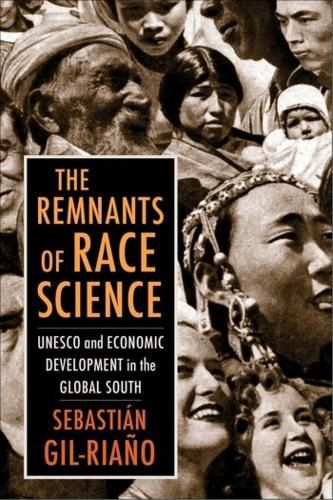Readings Newsletter
Become a Readings Member to make your shopping experience even easier.
Sign in or sign up for free!
You’re not far away from qualifying for FREE standard shipping within Australia
You’ve qualified for FREE standard shipping within Australia
The cart is loading…






After World War II, UNESCO launched an ambitious international campaign against race prejudice. Casting racism as a problem of ignorance, it sought to reduce prejudice by spreading the latest scientific knowledge about human diversity to instill "mutual understanding" between groups of people. This campaign has often been understood as a response led by British and U.S. scientists to the extreme ideas that informed Nazi Germany. Yet many of its key figures were social scientists either raised in or closely involved with South America and the South Pacific.
The Remnants of Race Science traces the influence of ideas from the Global South on UNESCO's race campaign, illuminating its relationship to notions of modernization and economic development. Sebastian Gil-Riano examines the campaign participants' involvement in some of the most ambitious development projects of the postwar period. In challenging race prejudice, these experts drew on ideas about race that emphasized plasticity and mutability, in contrast to the fixed categories of scientific racism. Gil-Riano argues that these same ideas legitimated projects of economic development and social integration aimed at bringing ostensibly "backward" indigenous and non-European peoples into the modern world. He also shows how these experts' promotion of studies of race relations inadvertently spurred a deeper reckoning with the structural and imperial sources of racism as well as the aftermath of the transatlantic slave trade.
Shedding new light on the postwar refashioning of ideas about race, this book reveals how internationalist efforts to dismantle racism paved the way for postcolonial modernization projects.
$9.00 standard shipping within Australia
FREE standard shipping within Australia for orders over $100.00
Express & International shipping calculated at checkout
After World War II, UNESCO launched an ambitious international campaign against race prejudice. Casting racism as a problem of ignorance, it sought to reduce prejudice by spreading the latest scientific knowledge about human diversity to instill "mutual understanding" between groups of people. This campaign has often been understood as a response led by British and U.S. scientists to the extreme ideas that informed Nazi Germany. Yet many of its key figures were social scientists either raised in or closely involved with South America and the South Pacific.
The Remnants of Race Science traces the influence of ideas from the Global South on UNESCO's race campaign, illuminating its relationship to notions of modernization and economic development. Sebastian Gil-Riano examines the campaign participants' involvement in some of the most ambitious development projects of the postwar period. In challenging race prejudice, these experts drew on ideas about race that emphasized plasticity and mutability, in contrast to the fixed categories of scientific racism. Gil-Riano argues that these same ideas legitimated projects of economic development and social integration aimed at bringing ostensibly "backward" indigenous and non-European peoples into the modern world. He also shows how these experts' promotion of studies of race relations inadvertently spurred a deeper reckoning with the structural and imperial sources of racism as well as the aftermath of the transatlantic slave trade.
Shedding new light on the postwar refashioning of ideas about race, this book reveals how internationalist efforts to dismantle racism paved the way for postcolonial modernization projects.